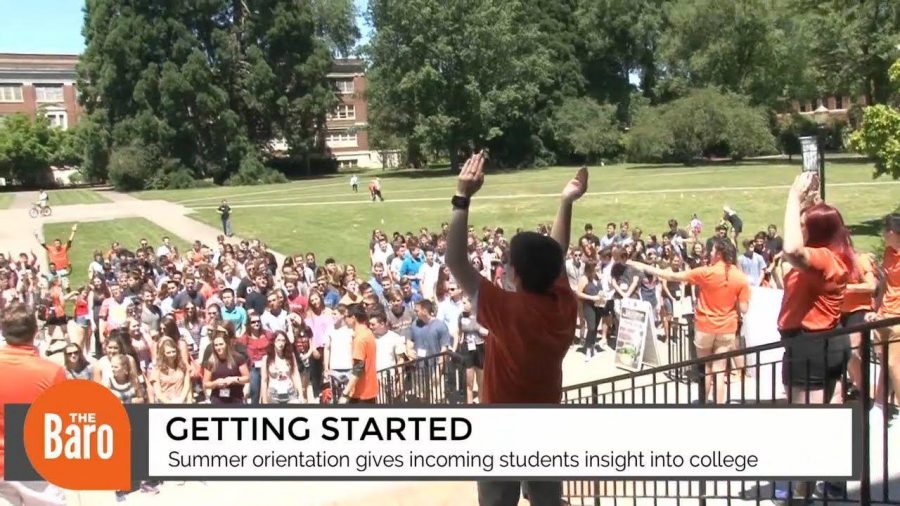Getting STARTed
July 3, 2017
A group of new students attending START are handed a roll of toilet paper. The only instruction from their leader is to take some—no specific amount. Some students take one square and others take a wingspan, then they are instructed to break their pieces into segments. Finally, the students get some clarifying and potentially horrifying information from their leaders.
“Tell us a fun fact about yourself for each piece you have,” said Josey Koehn, a 2017 Oregon State University START leader.
According to Koehn, this game is her favorite icebreaker, but the START orientation itself is like a two-day icebreaker that allows incoming students to learn more about about the campus that will soon become their home.
Throughout the summer, Oregon State University’s Corvallis campus has been hosting numerous START sessions, a program designed to help both first-year and transfer students orient themselves to OSU.
“Ultimately, our goal is for new students who come through the START program to leave feeling like they’re prepared to come in the fall and be a student at OSU,” said Natalie Rooney, orientation coordinator for the department of New Student Programs & Family Outreach, which manages START.
START was especially important for Carol Moreno, an OSU student and one of the START orientation coordinators. A first-generation college student, Moreno said she initially had no idea what to expect when she first arrived at OSU. She used her experiences at START to clear up some confusion and now she helps new students who are going through similar experiences.
“I love to meet students who had also told me that it was their first time (a member of their family went to college),” Moreno said. “To be able to calm them and say, ‘This is what I did’ or ‘This what you can do to get help on campus and you’ll be fine.’”
At START, new students meet with academic advisors and register for fall term courses. Students who have already declared a major register with others in their major. However, Koehn had a warning for students who were not fully certain of their major.
“If you’re not 100 percent passionate about your major, go into exploratory studies and don’t declare,” Koehn said. “Exploratory studies is there to help you pick a major that works best for you based off your interests and has advisors for that purpose. I just have seen too many people have their entire college careers messed up because they have a major and they go through it for two years and then they decide, ‘I don’t want to do that.’”
The leaders of the small groups strive to make the transition process easier on incoming students, according to Moreno. She said new students can help their START leaders and themselves by being open minded.
“If you are open to the possibility of making a new friend at START, if you are open to the possibility of meeting a really cool academic advisor or professor, if you are open to those possibilities, it’s going to make your experience at START so much better,” Rooney said.
Moreno noted one quality that can help incoming students get more out of their START experiences.
“I think they (incoming students) do the best when they ask the questions that they have,” Moreno said. “They can, for example, go to the different workshops that are going on for whatever they are interested in. I got questions all the time in my small groups about Greek life or what it would be like to be a DPP (degree partnership program) student or if they were in the military—like what to do along those lines. If they had never asked, they wouldn’t have been able to go to those things.”
According to Rooney, new students can have an influence on the leaders as well. She says expressing the gratitude and impact goes a long way.
“Give your START leader a high five. If they’ve made an impression on you, tell them that,” Rooney said. “They love hearing, ‘Hey, you really made this experience a lot better for me, this was really helpful.’ Getting that feedback from students and families is a dream for START leaders.”
The ultimate goal of the START program may be to prepare students for school in the fall, but a secondary outcome is to create a close-knit student body made up of students that care about each other, according to Moreno.
“OSU is a place (students) can call their home because people care about them doing well and succeeding,” Moreno said.
























































































































